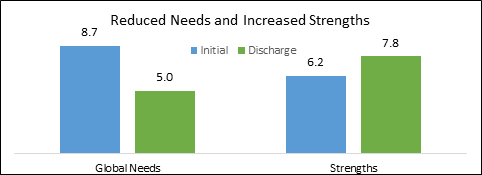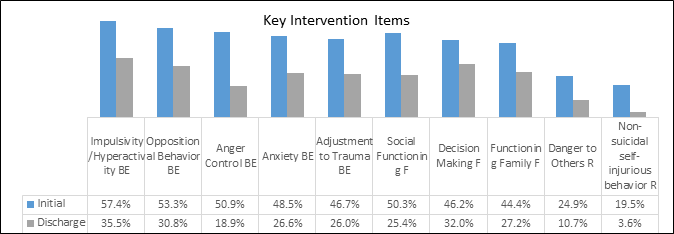From Compassion to Action: Doing Well by Doing Good
The following is an excerpt from the 2018 Magellan Community Impact Report.
Care is core to every service we deliver and everything we do. For Magellan, success is about so much more than profit or prestige. It’s about doing well by doing good. We’re always caring, listening, learning and using our collective insight to make a difference. When we care together, we turn hope into reality.
Caring and sharing our lived experiences
Wyoming’s High Fidelity Wraparound program is just one of many examples where Magellan team members, who have lived through similar experiences, are returning the care and concern they personally received.
High Fidelity Wraparound is a voluntary planning and care coordination process for children and youth (ages 4-20) with complex behavioral health conditions. High Fidelity Wraparound’s community based solutions and planning process bring people together from different areas of a family’s life to form a team. The team creates steps to help youth stay in their homes, schools and communities.
Through our partnership with the Wyoming Department of Health, Division of Healthcare Financing (Medicaid), Magellan serves as the Care Management Entity for the High Fidelity Wraparound program, setting the rules and providing training for everyone involved in the process.
The Wiederspahn family
When Magellan Care Worker Chassity Wiederspahn’s son began to struggle behaviorally, mentally and emotionally in first grade, she knew she needed assistance but was at a loss. Through High Fidelity Wraparound, she was able to build a team around her family to guide them in their search for help. The High Fidelity Wraparound program allowed them to build a strong support system and learn the resources available in their community. It gave them confidence that they could handle the challenges that might lie ahead. As a graduate of High Fidelity Wraparound, Chassity shares her story with the families and providers she speaks to on a daily basis.
Many of our Magellan team members have lived these experiences. which enables them to bring a valuable set of life skills to their daily jobs each and every day. As employees, the job is more than just the tasks at hand, we truly care and offer ourselves as role models of hope and success.
The Campbell family
Magellan’s Kathryn (Kat) Campbell, family support specialist, is the proud mother of four beautiful children, two of whom are adopted from Wyoming’s foster care system. Blending a family was an overwhelming process despite the research and preparation of a therapist team. The crash course in secondary trauma left Kat and her partner reeling.
The family was referred by the local crisis center to High Fidelity Wraparound. The process created a safe space for Kat’s entire family to focus on caring for themselves, and they started to feel the support of those around them who were waiting to help. High Fidelity Wraparound’s empowerment and team building strategy gave the family the skills to run their own team for the high needs their children had, long after the family graduated from the process. Kat now trains and mentors providers who work directly with families like her own.

